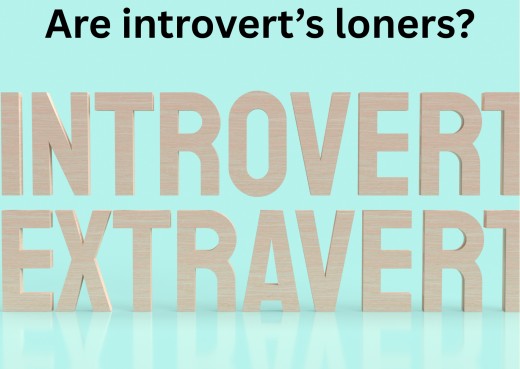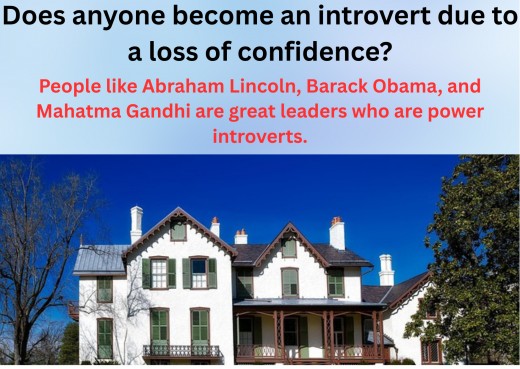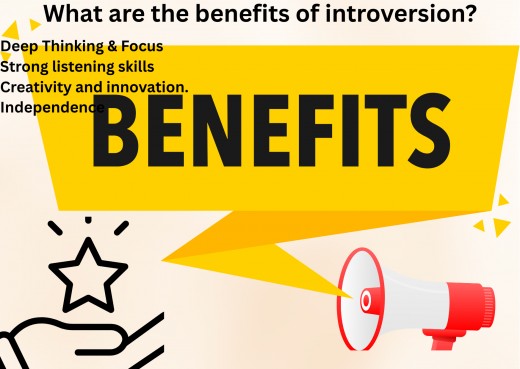Are introvert’s loners?

I am an introvert, but I'm not a loner. That said, I've avoided mixing with people a lot over the past six to seven years because I work constantly, and I love what I do. If that is the case, I cannot afford to mix around too much to avoid too many distractions.
A loner could be an introvert, but a loner cannot be an introvert. Many introverts enjoy social interactions, but they also make sure to reserve time for themselves to engage in activities like meditation or self-reflection. Moreover, if some people spend most of their time in self-analysis, they are often referred to as loners.
A person likes to be alone and enjoy their time. They are quite a person, thoughtful and observant, and they keep their emotions private. Moreover, not comfortable among the large crowd of individuals. Introverts are good at writing because they can communicate well with their hands. J K Rowling is an introvert because of the creative writing.
People born as introverts from a young age will never change. They told them to come out of their shell to participate in the activities.

Does anyone become an introvert due to a loss of confidence?
It is not correct to say that people become introverted because they have lost confidence; some introverts are incredibly fortunate. People like Abraham Lincoln, Barack Obama, and Mahatma Gandhi are great leaders who are power introverts.
An introvert tends to be concerned with their inner world and does not
care about social life. They frequently withdraw from the outside world and mainly concentrate on personal activities that engage their minds.
A loner is an individual who strongly prefers their own company to that of others. Others also do not like to initiate communication with others. You also don't have many friendships, and it takes a long time to form a bond with others. Your activities can be done alone, like reading, writing, and watching TV in your room. Mostly, family members may not know much about a loner, as they tend to keep away from those around them.
Introverts are often drawn to solitude, but they are not necessarily sensitive to social interactions. If you force them to join a party, they will mix around and enjoy themselves, and may entertain you as well.
Introverts, when in meetings, take time to think and talk, but they are good listeners. Simultaneously, a loner tends to avoid attending conferences and interacting with people. As the word suggests, a loner would prefer to spend their time alone without the company of others. Besides, a loner is not flexible.

Introversion is much more complicated. They differ from extraverts in that they become thrilled through conversations, whereas introverts expend energy in social situations. Therefore, it does not mean that introverts do like to be on their own. However, when interacting with people, they tend to feel more comfortable with someone similar to them.
A loner becomes tired and drained when spending too long with a group of people.
Therefore, a loner is an introvert, but an introvert is not necessarily a loner.
Is introversion genetic?
Yes, introversion is partly genetic, but it's not determined solely by genes.
Genetic influence
Studies, especially those on twins, show that 30–50% of personality traits, including introversion and extraversion, are heritable.
Specific genes related to dopamine regulation (like the DRD4 gene) may influence how people respond to stimulation, which is tied to introversion or extraversion.
Biological basis
Introverts often have more sensitive nervous systems and may prefer lower levels of external stimulation.
Brain imaging studies show introverts tend to have greater blood flow in the frontal lobes, areas involved in internal processing and planning.
Environmental influence
Life experiences, upbringing, culture, and environment also shape whether someone leans more introverted or extraverted.
For example, a naturally shy child might become more outgoing in a highly social environment or vice versa.
What are the benefits of introversion?
Introversion comes with many valuable strengths and benefits, particularly in environments that value deep thinking, focus, and meaningful connections.
Here are some key advantages
Deep Thinking & Focus
Introverts are often reflective and introspective, which enables them to analyze situations in depth.
They tend to think before they speak, leading to more thoughtful communications and the ability to make decisions.
Strong listening skills
Introverts listen more than they talk, making them great observers, empaths, and trusted confidants.
Creativity and innovation.
Spending more time alone allows introverts to delve deeply into ideas and develop creative solutions.
Many artists, writers, and inventors are introverts who thrive in solitude.
Independence
Introverts are often self-motivated and enjoy working independently without needing constant feedback or supervision.
Meaningful Relat
Meaningful Relationships
Instead of having many acquaintances, introverts often seek deeper, more meaningful relationships.
They build loyal, long-lasting bonds and value quality over quantity in friendships.
Calm, Composed Presence
Introverts tend to bring a calm, grounded energy to groups or stressful situations, which can be reassuring to others.
Strong Concentration
They excel at long periods of concentration and solitary work, which is ideal for research, writing, coding, and similar tasks.
Final Thought:
Introversion has a genetic component, but both nature and nurture play a role in influencing it. You're likely born with a predisposition, but your experiences help shape how it expresses itself.
- Home - Sat Business Academy
This website offers a range of articles, online courses, eBooks, coaching services, and lead magnets providing valuable business advice. We have started making audiobooks, which will be published soon. If you're interested in any of these, go ahead a








